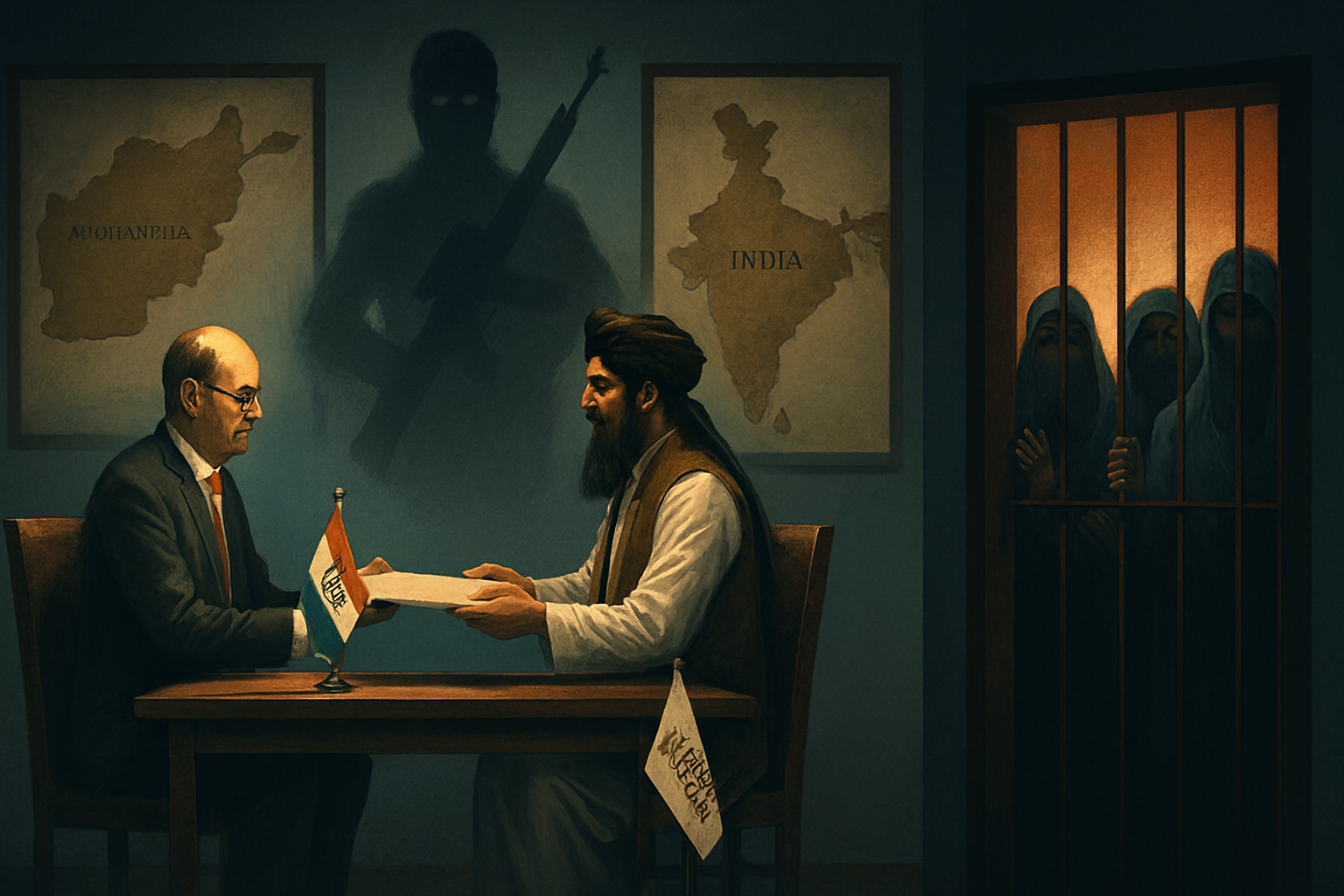Source: The Hindu Editorial (Adapted for Student Understanding)
Original Title: “Talking to Taliban: On India-Afghanistan ties”
Date: October 14, 2025
Introduction: A Diplomatic Tightrope
In a significant and controversial move, India recently hosted Afghanistan’s Acting Foreign Minister, Amir Khan Muttaqi, marking the highest-level engagement since the Taliban took power in 2021. This visit, as analyzed by The Hindu, signals a major strategic shift for India. It’s a classic example of a nation walking a diplomatic tightrope—balancing hard-nosed security interests against its core values and international reputation.
Why is India Talking to the Taliban? The “Pragmatism” Argument
The Hindu editorial outlines several compelling, pragmatic reasons for India’s engagement:
- National Security: The primary driver is to neutralize the terror threat from India’s western flank. A friendly government in Kabul can prevent Afghan territory from being used by anti-India terrorist groups.
- Protecting Investments: India has invested billions in Afghan infrastructure like dams, roads, and the parliament building. Engaging with the current rulers is a way to safeguard these assets and personnel.
- The “Enemy’s Enemy” Logic: With Afghanistan-Pakistan relations deteriorating, the Taliban, once a proxy of Pakistan, could now be a useful counterweight to Indian’s traditional rival.
- Keeping Up with the Region: Other major powers like Russia, China, and Iran are already engaging with the Taliban. India risks losing influence in the region if it remains on the sidelines.
A Major Shift and a Step Towards Recognition
The visit yielded concrete outcomes. India agreed to upgrade its embassy in Kabul and exchange diplomats, moving a step closer to formally recognizing the Taliban government—a step only Russia has taken so far. Crucially, the Taliban assured India that its soil would not be used for attacks, a stark contrast to their previous stance.
The Controversy: Where India’s Stance Was Unclear
However, as The Hindu points out, the visit was marred by missteps. A press conference where the Taliban flag was raised and no women journalists were invited caused outrage. More importantly, the Indian government missed a critical opportunity to publicly raise its concerns about the Taliban’s regressive policies, such as:
- The ban on women’s education and employment.
- The lack of an inclusive government.
- The treatment of minorities.
Conclusion: The Core Dilemma
The Hindu’s analysis leaves us with a crucial question: How far should India go? While engaging with the Taliban is a practical necessity for regional security, appeasing them without speaking up for human rights and democratic values could damage India’s global reputation. The path forward requires a delicate balance—engaging for security while consistently advocating for the rights of the Afghan people, especially women and minorities.
Key Takeaways:
- Pragmatism over Ideology: India is prioritizing its immediate security and economic interests.
- Strategic Re-alignment: The shifting Afghanistan-Pakistan dynamic offers India a new strategic opportunity.
- The Values Gap: India faces a challenge in reconciling its democratic principles with dealing with a theocratic regime.
